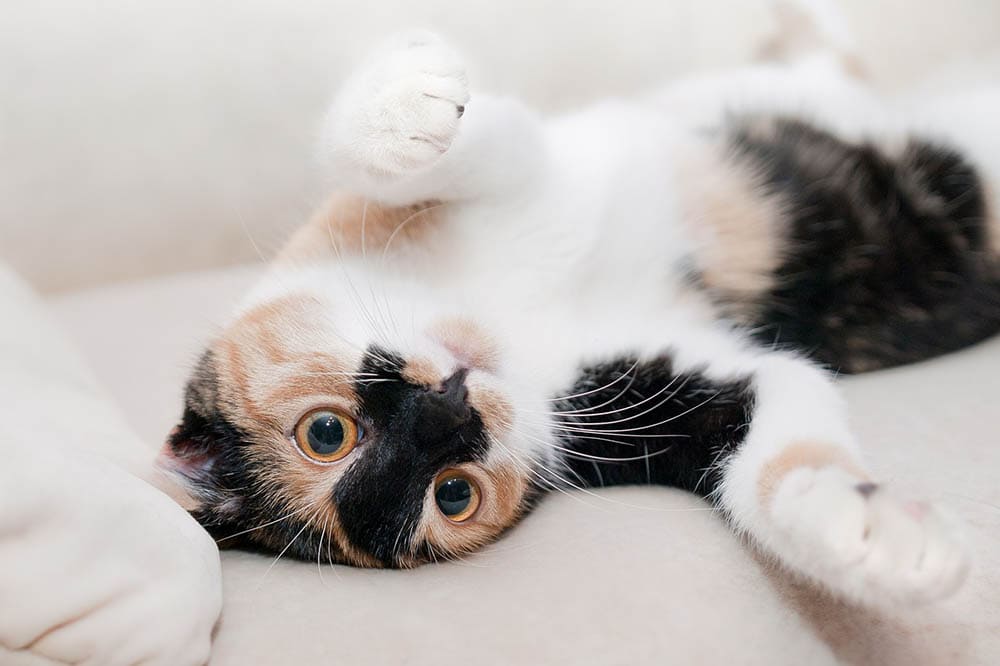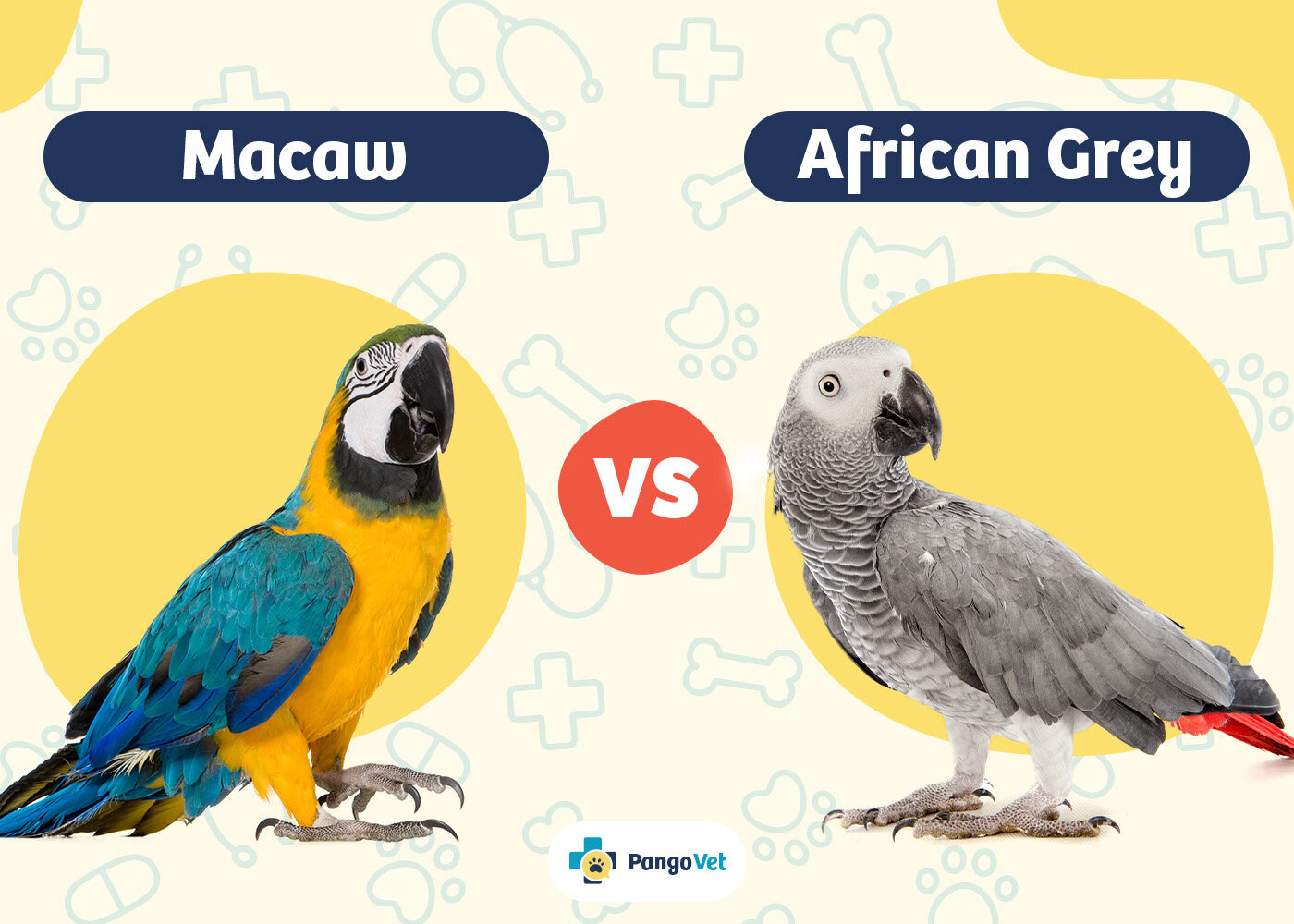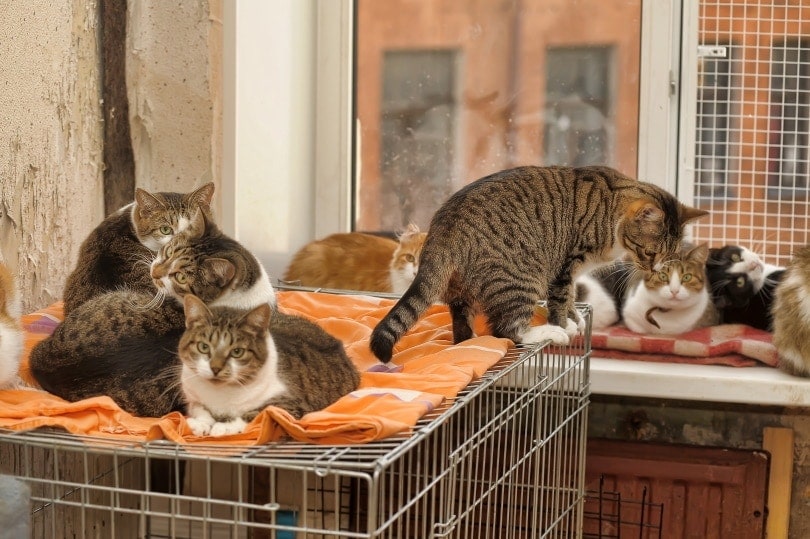Click to Skip Ahead
Many cat owners can relate to that bittersweet feeling of finally going on a vacation but having to leave their pets behind. We can easily get emotionally attached to our kitties, but it can sometimes be challenging to know whether they feel the same way. Fortunately, there’s research that proves that cats can get emotionally attached to their owners and miss them while they’re away.1
Cats may not show that they noticed their owners’ absence in the same way that dogs do. However, there are a few sure signs that you can look for to determine whether your cat missed you while you were gone.

The 5 Signs Your Cat Misses You
All cats are different and will express that they miss you in their own unique way. Here are common signs that your cat might show to indicate that they’re attached to you.
1. Affectionate Behavior
Affection is an obvious sign. If your cat greets you when you come home, they’re expressing that they’re happy you’re back. Other ways that cats show affection are the following:
- Purring, trilling, and meowing
- Curling up next to you or on your lap
- Trying to groom you
- Headbutting and rubbing against your face
- Staying in the same room as you
Cats also use eye contact to express affection, anger, and fear.2 If your cat is close to you, stares at you, and blinks slowly, this is a display of affectionate eye contact.
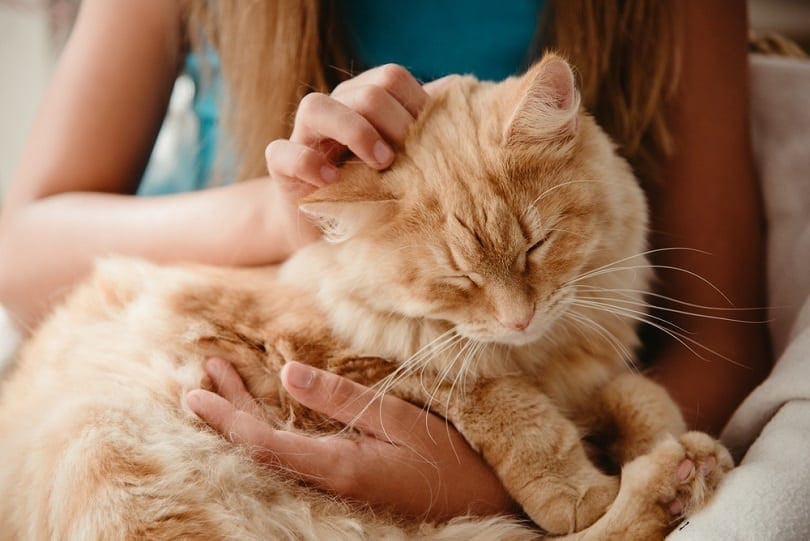
2. Attention-Seeking Behavior
Some cats will try to get your attention whenever you’re home, and it can become excessive. They may paw at you or meow or howl persistently. They might also attempt to interrupt your work or get in between you and whatever object has your attention.
3. Destructive Behavior
Cats will often start displaying destructive behaviors when they’re bored and alone. They can chew or scratch furniture, urinate outside of their litter boxes, or bite others. If your cat engages in destructive behaviors when you’re not home, it may be a sign that your cat doesn’t like it when you’re not there.
A lot of destructive behaviors can have different root causes. Sometimes, cats show these behaviors because they’re sick or experiencing a new change or transition. Make sure to consult with a veterinarian or cat behaviorist to determine why your cat is being destructive.
The Hepper Hi-Lo Cat Scratcher features a modern and clever design that offers cats an appealing place to scratch – and a way to keep them from scratching all the things they shouldn't. Unlike most cat toys (where your cat probably just prefers the cardboard box they came in), cat's flock to this design ... maybe it's because there's cardboard in it!
With its 3-position setup, textured cardboard, and sturdy frame, it encourages their natural scratching behavior, steering them away from clawing at items like furniture, walls, carpets, curtains, and people. The Hi-Lo is a reliable solution to safeguard your home and create a more enjoyable environment for your cat, all while looking modern and stylish. At PangoVet, we've admired Hepper for many years, and decided to take a controlling ownership interest so that we could benefit from the outstanding designs of this cool cat company!
4. Separation Anxiety
Cats can feel separation anxiety, and it’s especially common for cats that have an excessive attachment to their owners. Separation anxiety can look similar to destructive and attention-seeking behavior and may be identified by the following signs:
- No longer using the litter box
- Excessive crying
- Destroying household items
- Relentlessly seeking the owner’s attention
- Excessive grooming
If you are concerned about the health and well-being of your pet, seek veterinary advice for the best course of action.
5. Depression
Cats can begin to feel depressed if their owners are gone for too long and they miss them. They may start to display some of these signs:
- Lethargy
- Excessive meowing
- Stopping grooming themselves
- Changes in weight
- Loss of appetite
Your cat may also show signs through body language. Depressed cats will tuck their tails, and their ears will lie back on their heads.

Do Cats Know You Love Them?
Research shows that felines are capable of developing attachments to their humans. The bond may not look like that between a human and a dog, but cats can be social and even prefer human interaction.
Cats can develop different attachment styles, and your bond with your pet can strengthen in several ways. If you want to show your cat love in ways that they understand, there are several things you can try.
Give Them Treats
First, give your cats their favorite treats. Many cats are food-motivated, even the pickiest ones. You just have to find a treat that they love. When you feed your cats, it shows them that you’re someone who provides for them, and they can learn to trust you.
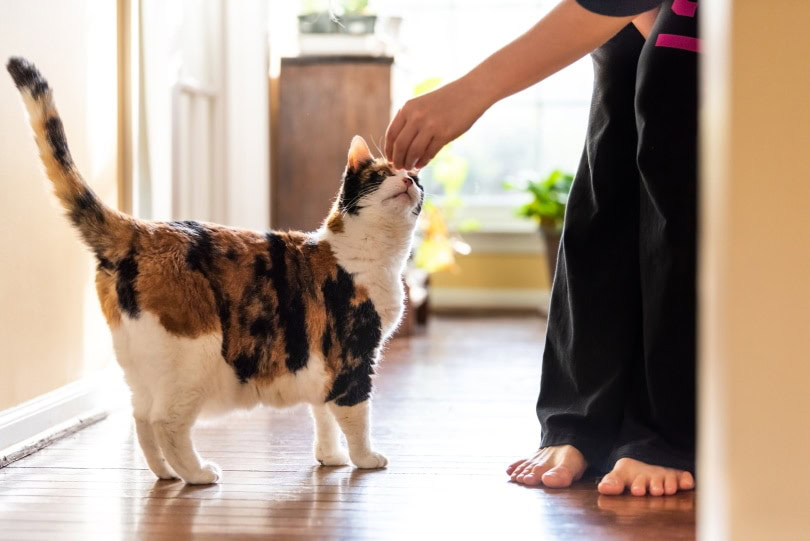
Play With Them
Discover how your cat enjoys playing. Some cats have a lot of energy and will want to chase a laser pointer or play with a wand toy. Other cats might be more relaxed and may just enjoy being in the same room as you.
Find out what your cats enjoy, and be someone who can provide that sort of enjoyment to them. They’ll quickly learn to appreciate your presence and a strong bond will develop over time.
Learn How Cats Communicate
Everyone likes to feel understood and cats are no exception. They’re constantly communicating with their actions and body language. Therefore, it’s worthwhile to learn what they’re trying to say so you can respond appropriately.
For example, an agitated cat will flatten their ears and whip their tail around. If you notice these signs of agitation, you can help your cat feel calmer by removing the source of agitation or creating a more calming space for them.
As you learn to understand your cat’s communication methods, they will learn that they can trust you to meet their needs.

Top 5 Cat Breeds That Get Attached to People
It’s important to note that early socialization with humans can significantly impact a cat’s attachment and affection for people. Therefore, despite the breed, some cats may prefer being around people because that’s what they’re used to having.
However, some breeds have a reputation for preferring the company of people. If you want a cat that enjoys being around people, consider one of the following breeds.
1. Birman
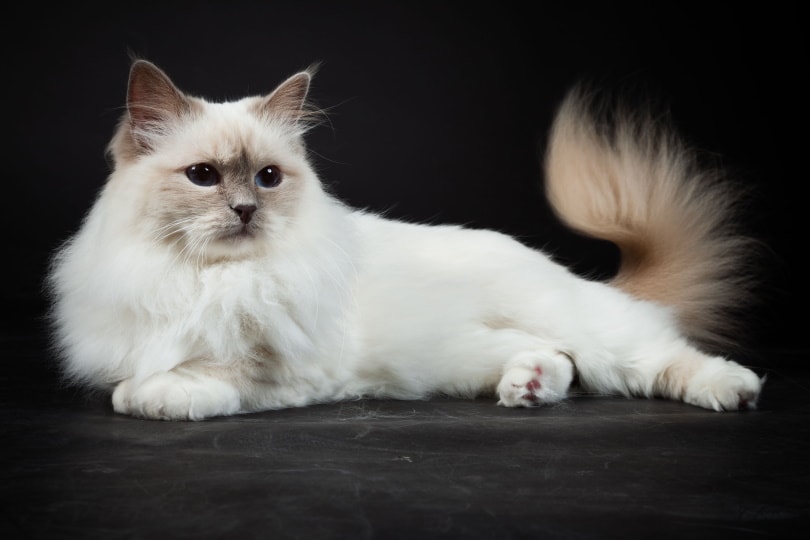
These fluffy cats typically enjoy socializing, so they don’t mind meeting multiple people. They’re also good-natured and gentle, so they usually do well in homes with young children. They can also form strong bonds with other household pets, such as dogs and other cats.
2. Maine Coon
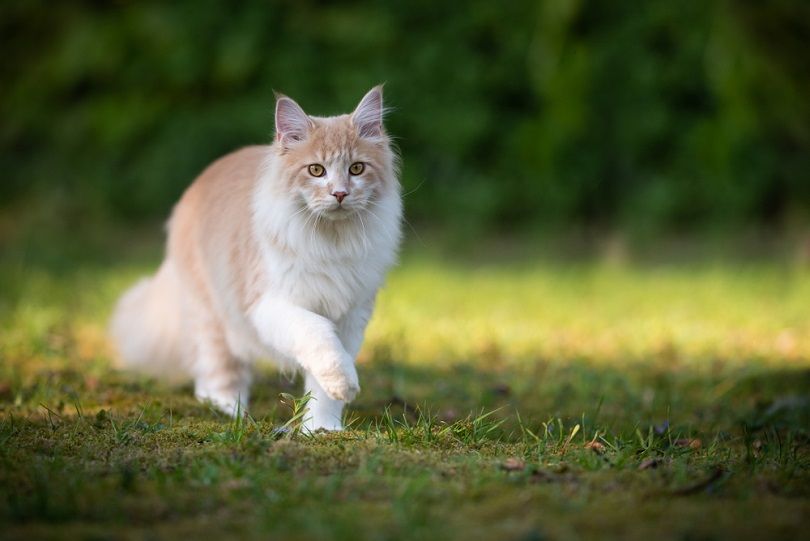
Maine Coons are gentle giants. They can outgrow small dog breeds, as they can be an impressive length of 40 inches and weigh up to 18 pounds.
Despite their large size, these cats are sweet and intelligent, so they tend to be easy to train. Maine Coons usually get along with anyone, but they definitely develop the strongest bond with their owners and prefer their company above anyone else.
3. Manx
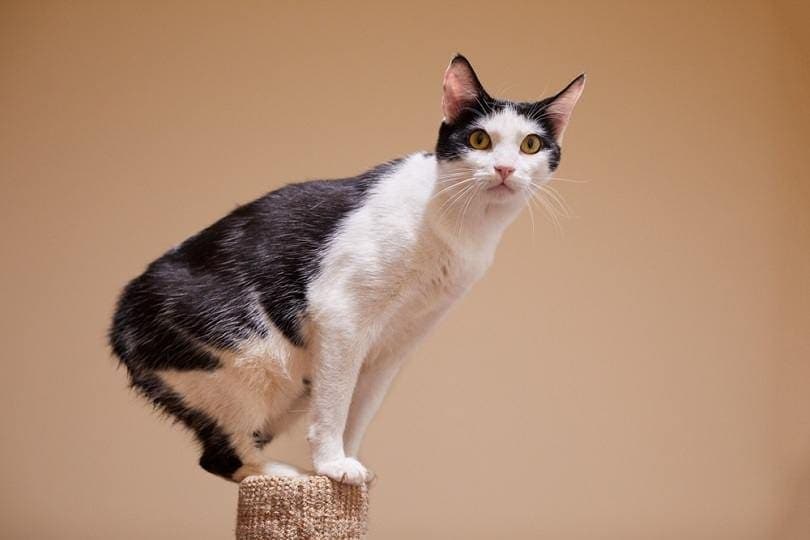
Manx cats are one-person cats, meaning they only tend to develop a strong bond with one or two people. Some owners have Manxes that act like puppies. They’re incredibly playful and some can even learn to fetch.
These cats are great for families because of their loyalty, and they don’t mind being around kids or other pets. They tend to be shy around strangers, and it’s unlikely they’ll warm up to a new person.
4. Ocicat
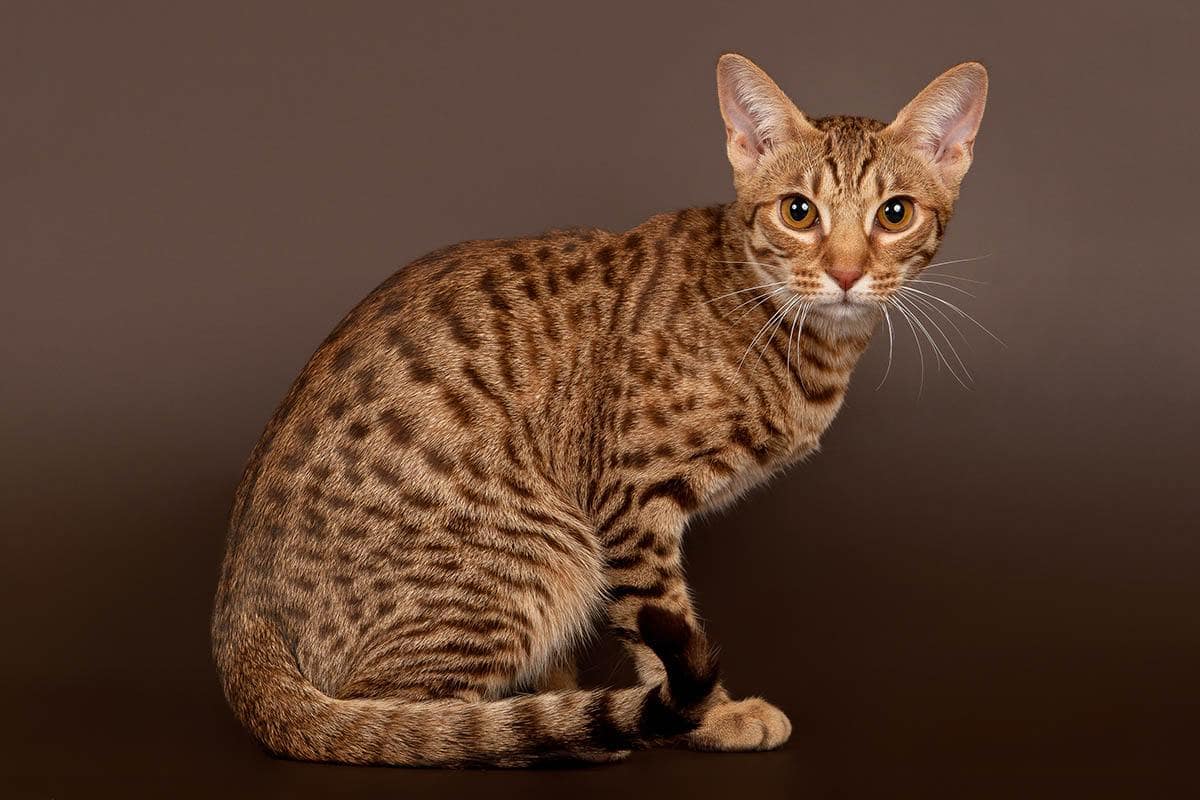
These cats are relatively brave and tend to be social. They will even greet strangers at the door, and they generally do well with children and other pets. As social as these cats are, they’re somewhat of a one-person cat. They’ll form a strong bond with one or two people and prefer to stick close to them and shadow them around the house.
5. Turkish Angora
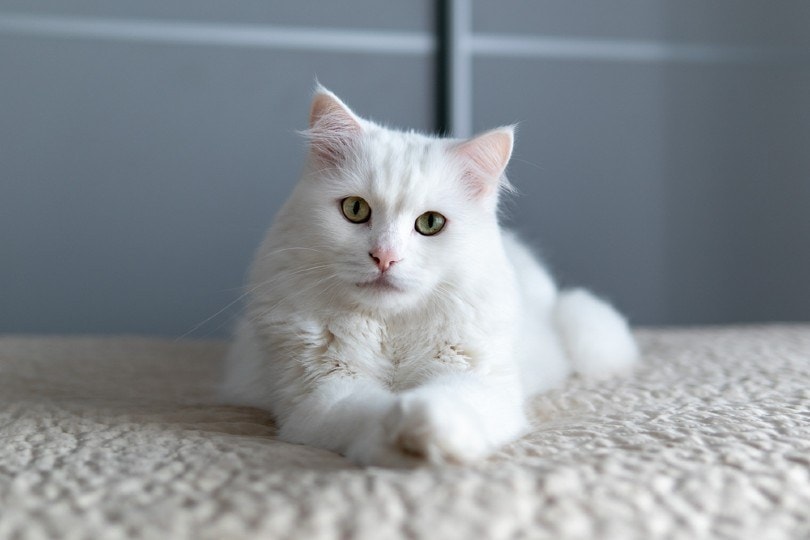
Turkish Angoras are also one-person cats. They’re also intelligent, so they’re easy to train once they form a bond with their owner.
These cats love to play, and they tend to be more vocal than other cats. Therefore, they’ll make it obvious when they feel like they deserve more attention from you.

Final Thoughts
Cats have a reputation for being aloof and independent, but they’re actually quite capable of showing love and affection. Some breeds even prefer to be a part of the action and be around people. We just tend to miss the cues that our cats give us.
So, start observing your cat, and see what sorts of behaviors they display while you’re home or when you’ve just returned home. There are likely a lot of messages they’re sending you. Receiving and correctly interpreting these messages can lead to forming even deeper bonds with your cat.
See also:
Featured Image Credit: Pixabay
